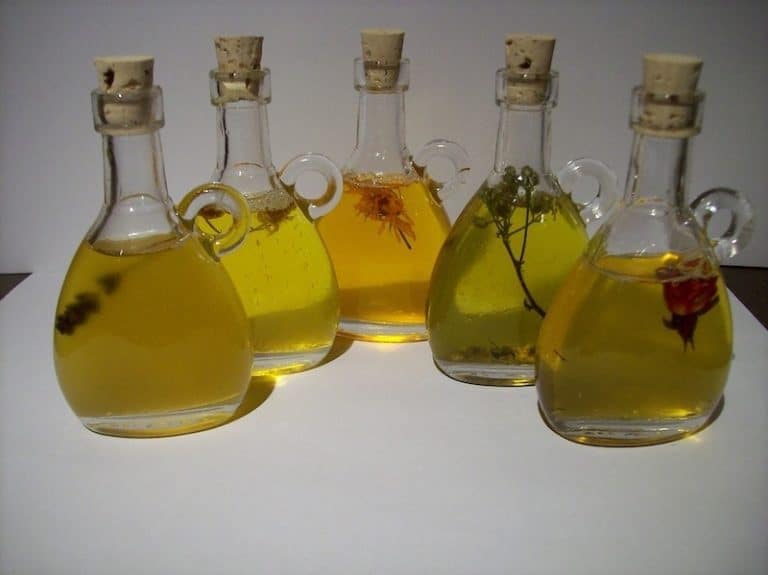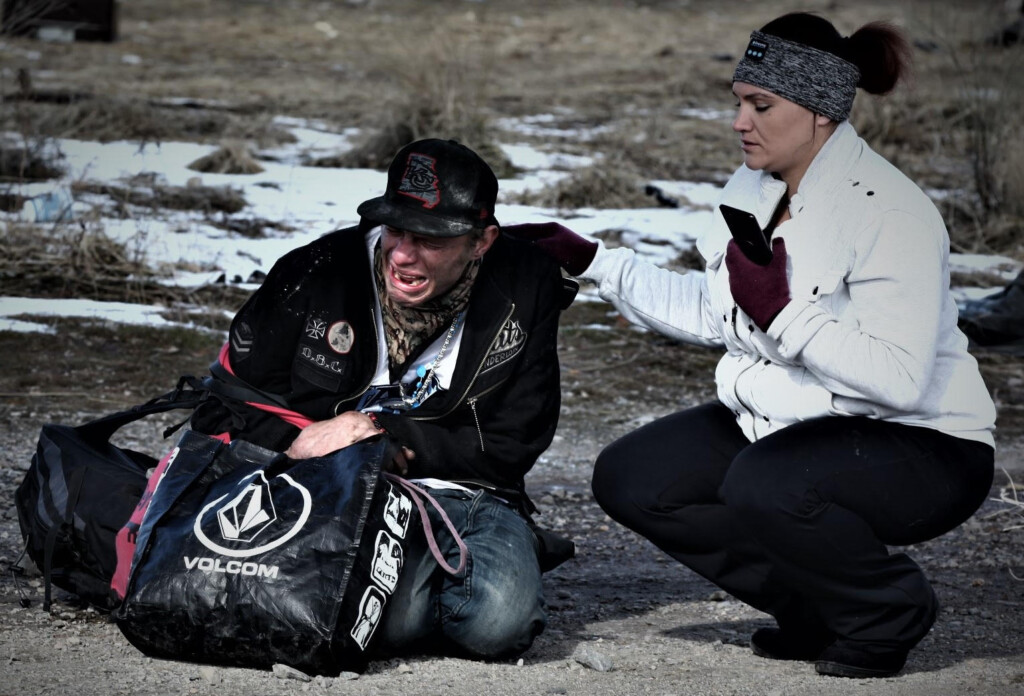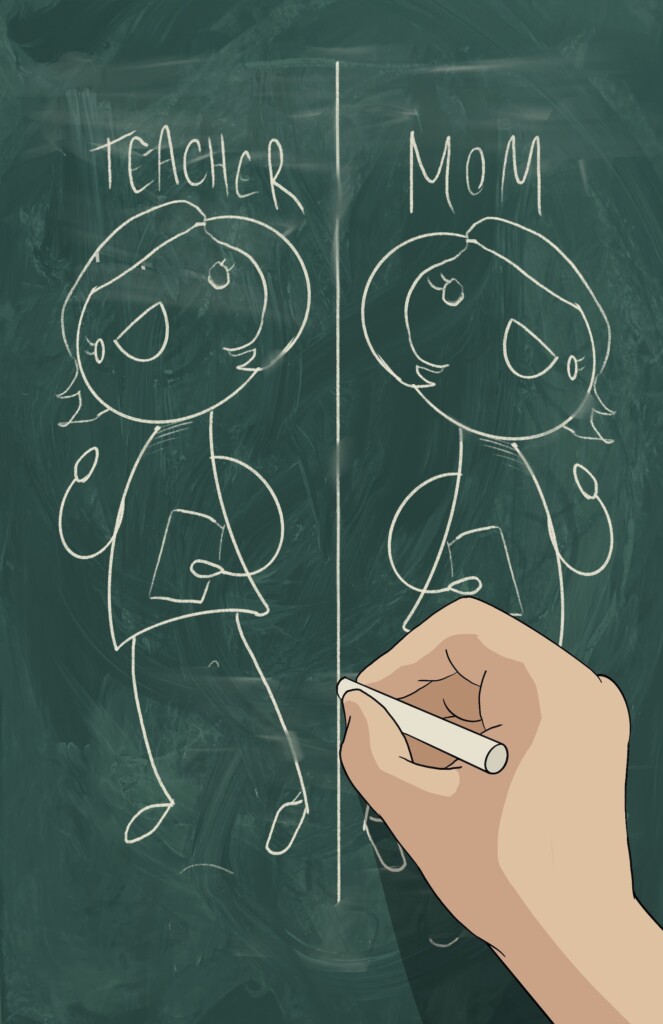The following story was written and reported by The Utah Investigative Journalism Project in partnership with Utah Stories.

“Hi! I just need some advice please!,” read a panicky post made to the Facebook page of “DT Essential Oils – Best Recipes & Remedies” on March 24. The woman wrote that her husband was traveling for work to Washington and she wanted to know which doTerra oils would protect him against COVID-19. A chorus of commenters of the page’s nearly 43,000 members chimed in support suggesting a variety of doTerra’s essential oils like the company’s On Guard products, often promoted as being able to boost one’s immune system—despite no FDA verification of the claim and a lack of scientific support.
Multiple commenters urged placing On Guard on a face mask, or inside nostrils and on ears (despite product warnings against direct skin application).
One commenter posted a meme of a woman laughing in the rain under a bright umbrella with “Virus Stopper” next to it, with instructions underneath for using frankincense and oregano oils.
One user posted a screenshot of a supposed medical article—lacking a byline or sources—with the headline “Oregano Oil Proves Effective Against Coronavirus.”
Multi-level marketers are prohibited by law from making direct health claims about their products. But since they overwhelmingly use independent distributors for direct sales, the industry often is unaccountable to the sales pitches of its on-the-ground distributors. Allowing them to pass on bad science, unverified anecdotes and sometimes outright lies to sell their products.
Major Utah-based essential oil companies doTerra and Young Living have recently reported backlogs of sales of their “immunity boosting” products.
At the corporate level the companies are careful to avoid illegal marketing playing to pandemic fears, but messaging to distributors is also vague about claims or poorly communicated. DoTerra has been releasing daily videos recapping the latest COVID-19 headlines and offering social distancing and hygiene advice—but without telling distributors outright what they can say about their supposed “immunity boosting” products.
Young Living has a Facebook page called “Young Living Conduct Success” with helpful posts talking about which claims are legal and which are not—especially in regards to their products’ anti-viral capabilities. The page has over 64,000 followers and over 62,000 likes. But none of the page’s informative posts was shared to the 1.5 million followers on Young Living’s main Facebook page all throughout March.
In an emailed statement doTerra explained the company does not claim their products treat or cure any illnesses including COVID-19, and that they actively search for non-compliant claims to be taken down. The company also states their informational videos “have mentioned several times there is currently no cure for COVID-19,” and that people should follow the guidance of the Centers for Disease Control and the World Health Organization.
“During this time we are particularly sensitive to any coronavirus claims and have asked our Wellness Advocates to be as well.”
In a statement from Young Living the company also noted their members have been “provided training resources” to know not to make claims that their products can treat COVID-19 and are policing compliance as well.
“Our compliance team is continuing to actively work to remove any posts or other materials contrary to this on a global scale,” the company states.
Natural Ways
Young Living Malaysia made a post on March 13 touting the value of the company’s Thieves Oil hand sanitizer with 65% alcohol content. Health guidelines recommend sanitizers with 60% or higher alcohol content to disinfect COVID-19, but the social media post stated that traditional 90% and higher sanitizer “will evaporate with your skin moisture and may lead to cracks, that might lead to unnecessary infection due to open wound.”
One Young Living distributor from New Brunswick, Canada posted that she and her family had coronavirus but that “We managed it with vitamins, thieves oil and natural ways,” adding at the end of the post “I’m pretty sure it was [COVID-19]…”
These claims are frustrating but not surprising says Dr. Jessie Hawkins a research director for the Franklin School of Integrative Health Sciences. She also does clinical trial research on essential oil products and holds a PhD in Health Research from Middle Tennessee State University, and has also completed completed post-graduate epidemiology studies at the London School of Hygiene and Tropical Medicine.
She says part of the reason there are so few research studies of the effects of essential oils on human subjects comes from industry resistance. Companies don’t want scientific testing when they might not like the results.
“With the regulatory loopholes and the way companies can market their products they don’t have to subject them to science,” Hawkins says.
That marketing loophole is such a big reason these products are sold through direct sales, says William Keep, the Vice President for Academic Affairs at The College of New Jersey, who has previously assisted as an expert witness in the prosecution of pyramid schemes, and has co-written multiple articles on pyramid schemes along with Peter Vander Nat, the retired senior economist at the Federal Trade Commission.
The pitches succeed because they come from childhood friends, family members and others desperate to make a sale and willing to trade on that association to keep their numbers up, he says.
“It’s an industry that leverages trust for a profit and I think that’s awful,” Keep says, adding that “this is not the [economic] environment where people are going to put $2,000 on their credit card to join” an MLM. “In order to get them to do it, [distributors] now have to make even more outrageous claims.”
Doctor’s Orders
Dr. David Hill, the “founding medical officer” for doTerra has over 148,000 followers on his Facebook page. On March 20, he posted a video that never once mentions COVID-19 by name, but instead discusses various ways to protect and strengthen the body’s immune system.
In the video he repeatedly plugs doTerra’s On Guard, “immunity support” products, while talking about the importance of washing and sanitizing hands, and surfaces people touch.
“I love the On Guard hand soap and that should be a staple you go for every single day,” Hill says in the video. He also advised people that they could make their own surface cleaner from citrus oil and peppermint oil, despite the fact that the Environmental Protection Agency does not include any doTerra products in its list of disinfectants that can be used against COVID-19 contaminated surfaces.
He also advises people they can make “DIY hand sanitizer” by adding On Guard essential oil with aloe and water—another recipe that would not sanitize hands effectively against COVID-19 according to CDC guidelines.
Dr. Hawkins says companies like doTerra overemphasize scientific evidence, promoting research studies that reference benefits found in petri dish conditions of the effects of oils on bacteria. But it’s a huge leap she says to extrapolate what those tests could actually mean for the human body when it comes to efficacy and safe dosing.
“We could put bleach in a petri dish and accomplish all sorts of stuff, but we don’t pop a bleach pill or diffuse it around the house,” she says.






